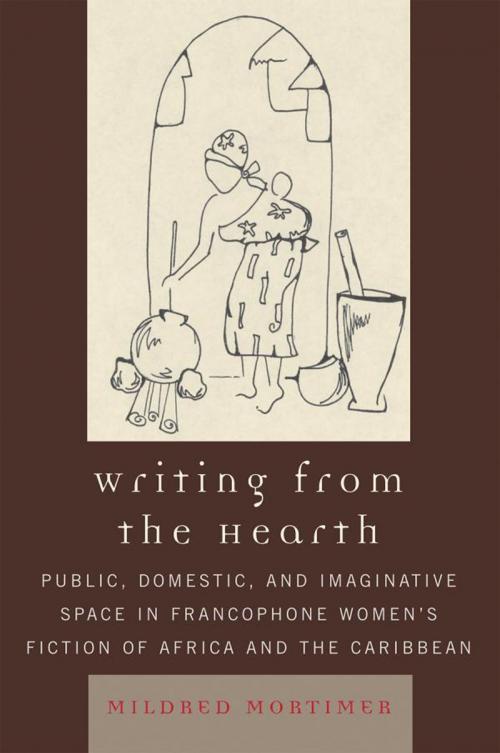Writing from the Hearth
Public, Domestic, and Imaginative Space in Francophone Women's Fiction of Africa and the Caribbean
Fiction & Literature, Literary Theory & Criticism, African, Central & South American, Feminist Criticism| Author: | Mildred Mortimer | ISBN: | 9780739162767 |
| Publisher: | Lexington Books | Publication: | November 1, 2007 |
| Imprint: | Lexington Books | Language: | English |
| Author: | Mildred Mortimer |
| ISBN: | 9780739162767 |
| Publisher: | Lexington Books |
| Publication: | November 1, 2007 |
| Imprint: | Lexington Books |
| Language: | English |
If space is important in the realm of imagination and a key theme in feminist theory, cross-cultural studies of social maps reveal that men and women's spatial experiences differ; women rarely control physical or social space directly. Positing the thesis that women's writing of Francophone Africa and the Caribbean offers important perspectives on the relationship of gender to space,Writing from the Hearth proposes close readings of Francophone women writers of Africa (Aoua KZita, Mariama B%, Ken Bugul, Calixthe Beyala, and Aminata Sow Fall) and the Caribbean (Marie Chauvet, Simon Schwarz-Bart, Maryse CondZ, and Edwidge Danticat). As critical readings of postcolonial African and Caribbean literature show that tropes of confinement appear frequently in female-authored texts_where home is often depicted as a place of alienation_this critical study examines ambiguities associated with domestic space as enclosure as it explores the relationship between the female protagonist and the inner and outer spaces of her world: domestic, imaginative, and public space. Writing from the Hearth probes the hypothesis that the female protagonist can move toward empowerment by entering public space from which she has been excluded by indigenous patriarchs and European colonizers and by establishing a new relationship to domestic space or securing a liberating alternative space within it. Flexible and multipurpose, alternative space is a place of possibilities that can function as a refuge for meditation, recollection, or fantasy, an antechamber for action, and a site of resistance and performance. Here, by telling the tale, writing the creative work, a woman can affirm her sense of self.
If space is important in the realm of imagination and a key theme in feminist theory, cross-cultural studies of social maps reveal that men and women's spatial experiences differ; women rarely control physical or social space directly. Positing the thesis that women's writing of Francophone Africa and the Caribbean offers important perspectives on the relationship of gender to space,Writing from the Hearth proposes close readings of Francophone women writers of Africa (Aoua KZita, Mariama B%, Ken Bugul, Calixthe Beyala, and Aminata Sow Fall) and the Caribbean (Marie Chauvet, Simon Schwarz-Bart, Maryse CondZ, and Edwidge Danticat). As critical readings of postcolonial African and Caribbean literature show that tropes of confinement appear frequently in female-authored texts_where home is often depicted as a place of alienation_this critical study examines ambiguities associated with domestic space as enclosure as it explores the relationship between the female protagonist and the inner and outer spaces of her world: domestic, imaginative, and public space. Writing from the Hearth probes the hypothesis that the female protagonist can move toward empowerment by entering public space from which she has been excluded by indigenous patriarchs and European colonizers and by establishing a new relationship to domestic space or securing a liberating alternative space within it. Flexible and multipurpose, alternative space is a place of possibilities that can function as a refuge for meditation, recollection, or fantasy, an antechamber for action, and a site of resistance and performance. Here, by telling the tale, writing the creative work, a woman can affirm her sense of self.















